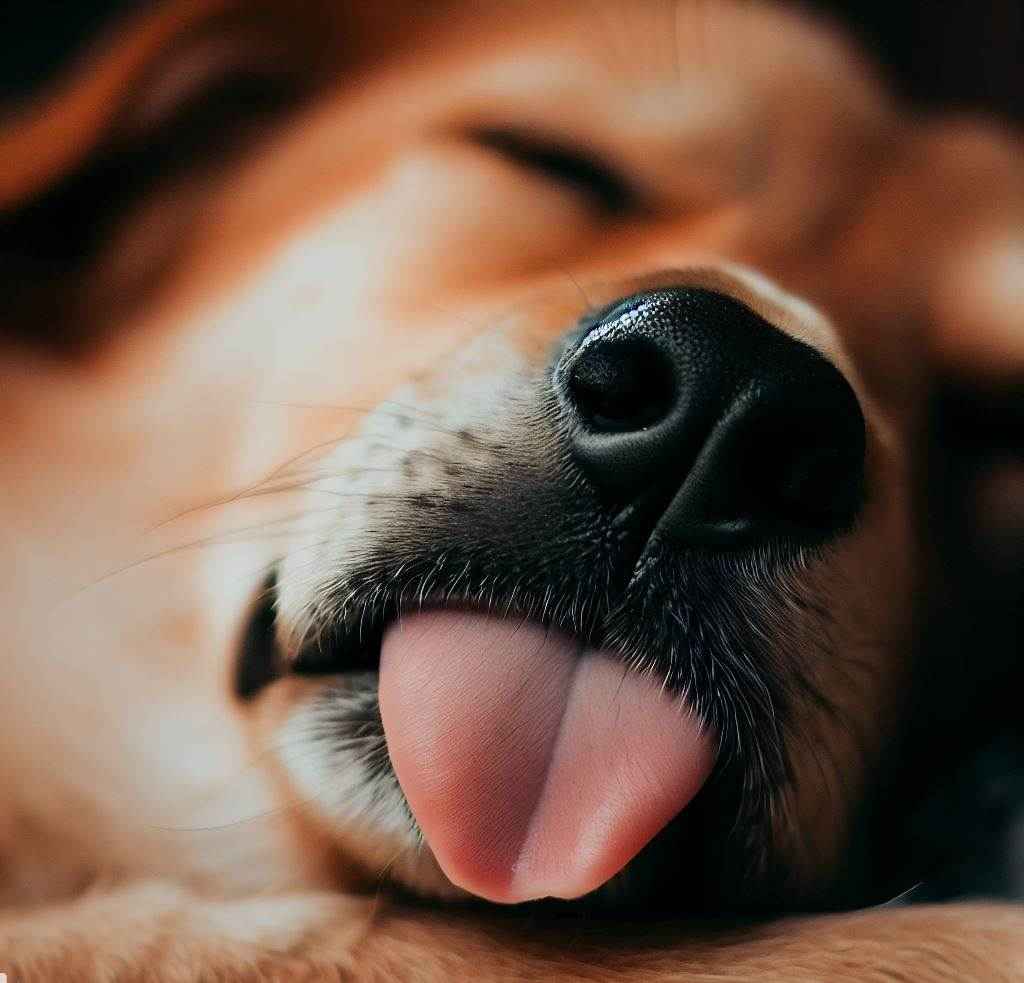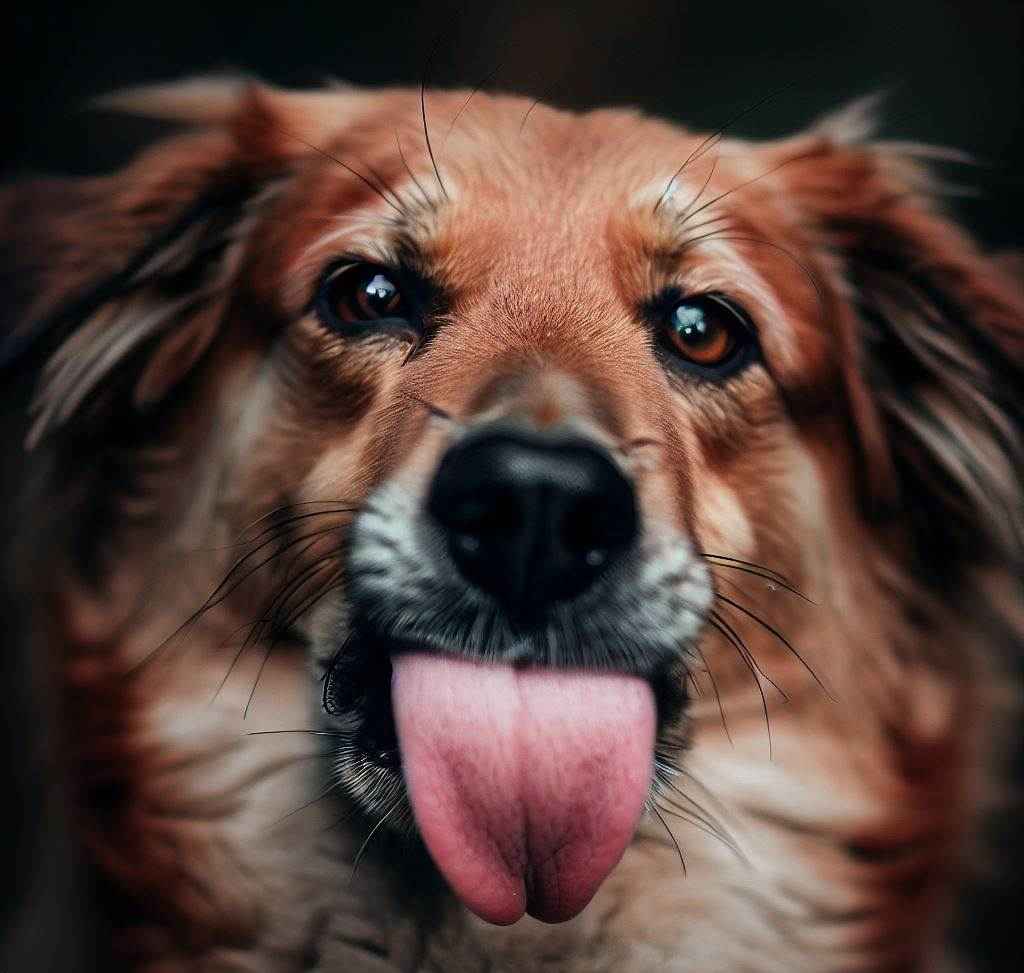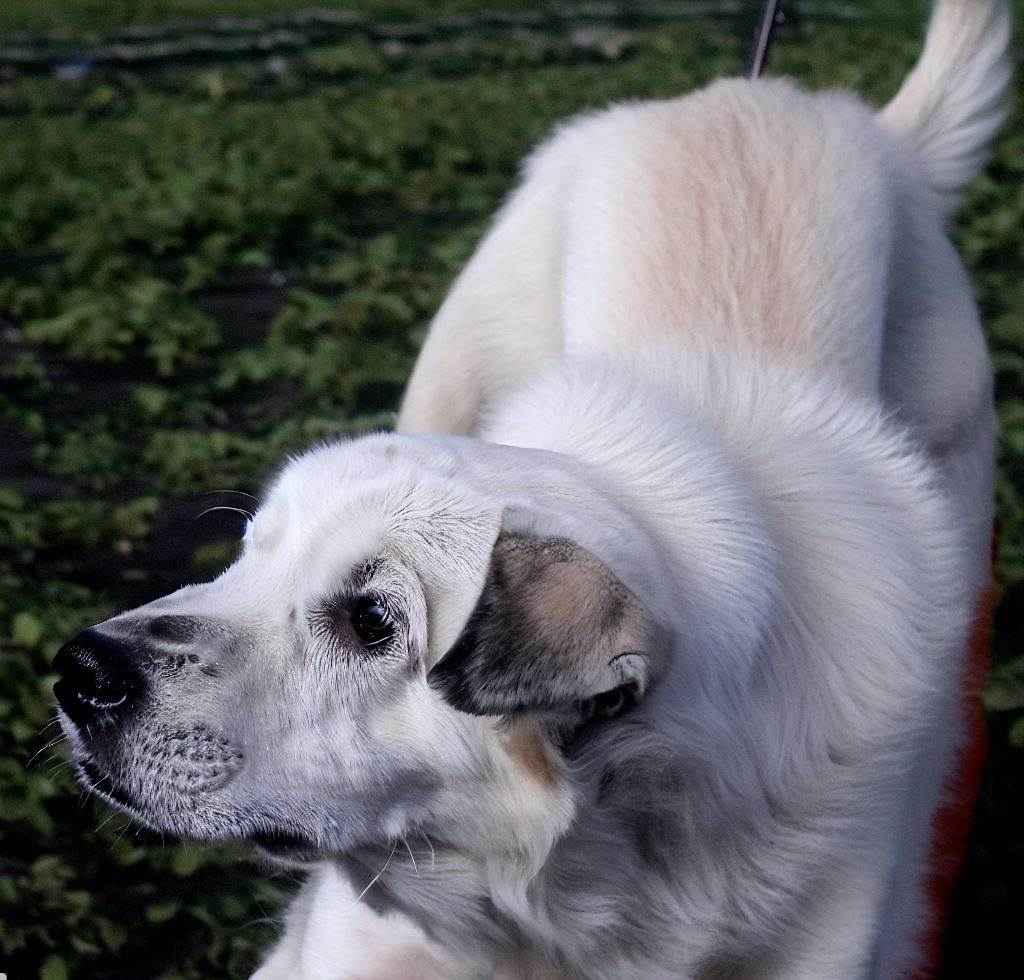Why Do Dogs Sleep With Their Tongue Out?
Answer the question Why Do Dogs Sleep With Their Tongue Out? During sleep the muscles including the tongue is relax that allows the tongue to protrude from the mouth. This phenomenon can occur in dogs and people as their jaws may open during profound sleep and extreme relaxation. Dogs sleeping with their tongues out a seemingly adorable and amusing sight can be attributed to a combination of factors related to their physiology, comfort and relaxation.
Temperature Regulation:
Dogs do not sweat like humans but they release excess body heat through their paw pads and by panting. During sleep, especially in warm conditions the dogs may stick their tongues out as a way to regulate their body temperature and cool down. It is akin to a natural cooling mechanism.
Muscle Relaxation:
When a dog is in deep or restorative sleep then at that time their muscles are fully relaxed. This relaxation can extend to their facial muscles including the tongue. The tongue may flop out during this state of profound relaxation.
Comfort Zone:
For some dogs sleeping with their tongue out might simply be a comfortable position. Dogs can sleep in various positions and some find it more comfortable to have their mouths slightly open.
Individual Variation:
Just as humans have unique sleep habits and positions so, dogs do too. Some dogs are more prone to sleeping with their tongues out than others and it can vary from one nap to another.
It is worth noting that sleeping with the tongue out is usually not a cause for concern. If it becomes a chronic or persistent issue but it could indicate dental problems, jaw misalignment or other health concerns that should be evaluated by a veterinarian. In most cases though it’s a harmless and endearing quirk that adds to a dog’s charm.
Why Does My Dog Stick His Tongue Out & Shake While Sleeping?
Due to the lack of teeth the dogs frequently sleep with their tongues out and may tremble, growl or scream as they are dozing off. Senior dogs are more likely than younger dogs to do this. When your dog sticks their tongue out and shakes while sleeping, it can appear amusing and cute but it may also be a sign of underlying physiological and behavioral factors.
Dreaming Out:
Dogs like humans has experience different sleep cycles including REM rapid eye movement sleep where dreaming occurs. During REM sleep the dogs may exhibit physical reactions like twitching, leg movements and yes they sticking their tongues out and shaking. This behavior likely corresponds to something they are dreaming about such as play or excitement.
Relaxation Form:
Similar to sleeping with their tongue out so, some dogs may do this when they are in a state of profound relaxation. Their muscles including the tongue they become more relaxed during deep sleep phases and leading to these movements.
Temperature Regulation:
A dog might stick their tongue out while sleeping if they are feeling hot. It’s a way to dissipate heat and cool down, similar to how they pant when awake.
Their Habit:
Over time, some dogs develop habits or sleep positions that involve sticking their tongue out. It can be a learned behavior or simply a comfortable position for them.
To consider the overall context and your dog’s health. Occasional tongue sticking and shaking during sleep is usually harmless and often entertaining. But if it becomes persistent or accompanied by other unusual behaviors then you also lead to suspect discomfort or health issues so, it’s a good idea to consult with a veterinarian to rule out any underlying problems and ensure your dog’s well-being. You can also know about Why do dogs hang their tounges out?
Why Do Dogs Push Their Tongue Out?
The tongue may stick out of a dog’s mouth when they are relaxed which may occur during or after naps. Older dogs with age-related muscular degeneration may be more likely to blep when they are relaxed. Dogs pushing their tongue out can be attributed to various factors and it’s important to consider the context and frequency of this behavior:
Taste or Sensation:
Sometimes a dog might push their tongue out in response to a taste or sensation in their mouth. This could be related to something they ate or a foreign object they are trying to remove.
Discomfort or Dental Issues:
Dental problems such as gum inflammation, toothache or an object stuck between their teeth can lead to a dog pushing their tongue out as a way to alleviate discomfort or irritation.
Nasal Issues:
If a dog has a stuffy or congested nose that they may extend their tongue in an attempt to clear their airway or improve their breathing. This is more common in brachycephalic breeds with flat faces as they are prone to respiratory issues.
Behavioral or Anxiety-Related:
In some cases, dogs may stick their tongue out as a behavioral quirk or due to anxiety. This can be a self-soothing mechanism or a learned behavior.
Heat Regulation:
Similar to panting or sticking their tongue out can help dogs regulate their body temperature when they are feeling hot. This is a way to release excess heat.
Playfulness or Habit:
Some dogs push their tongue out playfully or as part of their regular behavior. It can be a unique and harmless habit they’ve developed.
If you notice your dog frequently pushing their tongue out especially when it is accompanied by signs of discomfort, changes in eating habits or other concerning behaviors, it’s advisable to consult with a veterinarian. They can help identify any underlying medical or dental issues and provide guidance on addressing them.
Why Is My Dog Mouth Moving While Sleeping?
Your dog may occasionally twitch with its eyes open or its face moving because the pons brain region which controls muscle activity during the REM sleep stage but is sometimes inefficient. Dogs often display endearing mouth movements during REM sleep a phase where most dreaming occurs. This behavior is common and endearing due to various reasons including the presence of saliva and salivary glands.
Dreaming:
Dog Dreams are just like human. During REM sleep their brains are active and they may experience dream-like scenarios. The movement of their mouth could be a physical response to what they are dreaming about such as running, playing or eating.
Muscle Relaxation:
During deep sleep phases a dog’s muscles containing those in their face and mouth become deeply relaxed. This relaxation can lead to subtle movements like lip twitching or mouth opening.
Reenacting Activities:
Dogs sometimes act out their dreams by moving their bodies including their mouths. For example if they dream about chasing a ball and their mouth may mimic the action of catching or retrieving.
Comfort:
Some dogs may find it comfortable to sleep with their mouths slightly open or with their lips moving. This could be a personal preference based on their individual comfort.
In most cases a dog’s mouth movements while sleeping are harmless and a normal part of their sleep cycle. It’s a reflection of their active dreams and deep relaxation during REM sleep. However, if you notice excessive or unusual movements or if your dog appears distressed while sleeping so, this is a good idea to consult with a veterinarian to rule out any underlying issues.
Why Is My Dog Face Twitching While Sleeping?
Short-wave sleep and rapid eye movement are among the sleep stages that dogs share with humans. While sleeping they frequently twitch frequently appearing to kick the air. Dogs often snooze for 12 to 14 hours per day. A dog’s mouth moving while sleeping is a common and often endearing sight. It usually occurs during a phase of sleep known as rapid eye movement sleep which is when most dreaming takes place. Here are some reasons why your dog’s mouth may move while they are asleep.
The dream during REM sleep with their brains active and experiencing dream as scenarios. Their mouth movements may be physical responses to these dreams, such as running, playing or eating. Deep sleep in dogs involves deep relaxation of muscles including face and mouth leading to subtle movements like lip twitching or mouth opening. Some dogs may find it comfortable to sleep with their mouths slightly open or with their lips moving. This could be a personal preference based on their individual comfort.
Mouth movements during dogs sleep are usually harmless and normal, reflecting their active dreams and deep relaxation during REM sleep. If excessive or unusual movements occur or your dog appears distressed, it’s recommended to consult a veterinarian to rule out any underlying issues.
Facts & Features Of Dogs:
Dogs are often referred to as man’s best friend and are incredible animals with a rich history and diverse characteristics. Here are some fascinating facts and features of dogs:
- Dogs are ranging from Chihuahuas to Great Danes that have been domesticated for thousands of years, with evidence suggesting they were first domesticated from wolves about 20000 to 40000 years ago.
- Dogs have played various roles in human history including hunting, herding and communication.
- Dogs are incredibly versatile animals.
- They excel in roles such as search and rescue, therapy, herding guarding and as service animals for people with disabilities.
- Their adaptability and intelligence make them highly trainable.
- Dogs have remarkable sensory abilities.
- Their sense of smell is estimated to be 10,000 to 100,000 times more sensitive than humans.
- Their hearing is also exceptional allowing them to detect sounds at frequencies beyond human capability.
- Dog lifespan varies by breed, with smaller breeds living longer.
- Ownership offers health benefits like reduced stress and improved emotional well-being, with increased physical activity leading to longer lifespans.
- Dogs provide companionship and unconditional love.
- Dogs are inherently social creatures that thrive on human interaction and companionship.
- They form strong bonds with their owners and often exhibit pack behavior when living in groups.
- Dogs’ sense of smell is so acute that they can detect medical conditions like seizures, low blood sugar and certain cancers.
- They are also used in various professional fields for tasks like drug detection and search and rescue.
- Just like humans dogs have distinct personalities.
- Their behavior and temperament are influenced by genetics, upbringing and socialization.
- This individuality is part of what makes each dog unique.
- Dogs are renowned for their loyalty and affection toward their human companions.
- Dogs have been cherished for millennia due to their unconditional love and deep emotional connections that makes them an integral parts of many people’s lives and families by transcending their role as pets.
- Their diverse characteristics from their incredible senses to their unwavering loyalty that make them cherished companions and working partners in various roles across the world.




